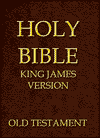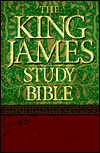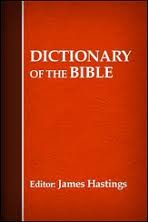The coming Messiah would inaugurate the age of salvation with the pouring out of the Spirit on all flesh.




"The concept of the Holy Spirit was broadened through the Wisdom Literature, especially in the personification of wisdom as that idea came into contact with the idea of Spirit. As early as Prov. 8:22ff. and Job 28:25ff. wisdom is presented as a more or less independent aspect of God's power (here as agent in creation), and wisdom is credited with functions and characteristics that are attributed to the Holy Spirit in the NT. Wisdom proceeded from the mouth of God and covered the earth as a mist at creation (Sir. 24:3); she is the breath of the power of God (Wisd. Solomon 7:25); and by means of his wisdom God formed man (Wisd. Sol. 9:2). The Lord poured out wisdom upon all his works, and she dwells with all flesh (Sir. 1:9-10). Moreover, wisdom is full of spirit, and indeed is identified with the Spirit (Wisd. Sol. 7:22; 9:1; cf. 1:5). Thus the Jews of NT times were familiar with the background of these ideas as they are variously expressed in the NT, ideas which use these background concepts but move beyond them to some unexpected conclusions. Indeed, Jesus taught that his messiahship and the corresponding outpouring of the Spirit were firmly rooted in OT understanding (Luke 4:18ff., citing Isa. 61:1-2), and, similar to intertestamental Judaism, understood the messianic Spirit of the Lord to be the Holy Spirit (Matt. 12:32), the spirit which had foretold through the prophets that the coming Messiah would inaugurate the age of salvation with the pouring out of the Spirit on all flesh.”
Messiah, Holy Spirit, Holy Ghost, Paraclete, Advocate, Comforter

"The Old Testament
In the OT the spirit of the Lord (ruah yhwh; LXX, to pneuma kyriou) is generally an expression for God's power, the extension of himself whereby he carries out many of his mighty deeds (e.g., 1 Kings 8:12; Judg. 14:6ff; 1 Sam. 11:6). As such, "spirit" sometimes finds expression in ways similar to other modes of God's activity, such as "The hand of God" (Ps. 19:1; 102:25); "The word of God" (Ps. 33:6; 147:15, 18); and the "Wisdom of God" (Exod. 28:3; 1 Kings 3:28; Job 32:8). The origins of the word "spirit" in both Hebrew (ruah) and Greek (pneuma) are similar, stemming from associations with "Breath" and "Wind," which were connected by ancient cultures to unseen spiritual force, hence "spirit" (cf. John 3:8, note the association with air in English; e.g., "pneumatic," "respiration," etc.). The AV uses the term "Holy Ghost" for "Holy Spirit" based on an obsolete usage of the word "ghost" (from Middle English and Anglo-Saxon, originally meaning "Breath," "spirit", cf. the German Geist). Thus it is understandable that God's creative word (Gen. 1:3ff.) is closely akin to God's creative breath (Gen. 2:7). Both ideas are identified elsewhere with God's spirit. As an agent in creation, God's spirit is the life principle of both men and animals (Job 33:4; Gen. 6:17; 7:15).
The primary function of the spirit of God in the OT is as the spirit of prophecy. God's spirit is the motivating force in the inspiration of the prophets, that power which moved sometimes to ecstasy but always to the revelation of God's message, expressed by the prophets with "thus saith the Lord.” Prophets are sometimes referred to as "men of God" (1 Sam. 2:27; 1 Kings 12:22; etc.); in Hos. 9:7 they are "men of the Spirit.” The general implication in the OT is that the prophets were inspired by the spirit of God (Num. 11:17; 1 Sam. 16:15; Mic. 3:8; Ezek. 2:2; etc.).
The phrase "Holy Spirit" appears in two contexts in the OT, but is qualified both times as God's holy Spirit (Ps. 51:11; Isa. 63:10-11, 14), such that it is clear that God himself is the referent, not the Holy Spirit which is encountered in the NT. The OT does not contain an idea of a semi-independent divine entity, the Holy Spirit. Rather, we find special expressions of God's activity with and through men. God's spirit is holy in the same way his word and his name are holy; they are all forms of his revelation and, as such, are set in antithesis to all things human or material. The OT, especially the prophets, anticipates a time when God, who is holy (or "other than/separate from" men; cf. Hos. 11:9) will pour out his spirit on men (Joel 2:28ff.; Isa. 11:1ff.; Ezek. 36:14ff.). who will themselves become holy. The Messiah/ Servant of God will be the one upon whom the spirit rests (Isa. 11:1ff.; 42:1ff.; 63:1ff.), and will inaugurate the time of salvation (Ezek. 36:14ff.; cf. Jer. 31:31ff.).
Intertestamental Judaism
within intertestamental Judaism several significant developments shaped the idea of "Holy Spirit" as it was understood in NT times. After the OT prophets had proclaimed the coming of the Spirit in the messianic age of salvation, Judaism had developed the idea that the spirit of prophecy had ceased within Israel with the last of the biblical prophets (Syriac Bar. 85:3; 1 Macc. 4:46; 14:41; etc.; cf. Ps. 74:9). Consequently, there arose from time to time a hope of the dawning of the new age, especially within the apocalyptic movement, which generally pointed to a supposed messiah and/or prophetic reawakening of some kind (cf. Acts 5:34ff.). The Qumran community is illustrative of this, since it understood itself to be involved in the fulfillment of Israel's messianic hope as the "preparers of the way of the Lord" (Isa. 40:3; cf. 1QS 8. 14-16). The Qumran literature also shows increased identification of the spirit of prophecy with "God's Holy Spirit" (1QS 8. 16; Zadokite Documents II. 12). The phrase, "the Holy Spirit," occasionally occurs in Judaism (IV Ezra 14:22; Ascension of Isa. 5:14; etc.), but, as in the rabbis, it generally meant "God's spirit of prophecy.” Thus, the messaianic expectation of Judaism, which included the eschatological outpouring of God's spirit (e.g., 1 Enoch 49:3, citing Isa. 11:2; cf. Sybilline Oracle III, 582, based on Joel 2:28ff.), was bound up with the conviction that the Spirit had ceased in Israel with the last of the prophets; the Holy Spirit was understood as God's spirit of prophecy, which would be given again in the new age to a purified Israel in conjunction with the advent of a Messiah.
The concept of the Holy Spirit was broadened through the Wisdom Literature, especially in the personification of wisdom as that idea came into contact with the idea of Spirit. As early as Prov. 8:22ff. and Job 28:25ff. wisdom is presented as a more or less independent aspect of God's power (here as agent in creation), and wisdom is credited with functions and characteristics that are attributed to the Holy Spirit in the NT. Wisdom proceeded from the mouth of God and covered the earth as a mist at creation (Sir. 24:3); she is the breath of the power of God (Wisd. Solomon 7:25); and by means of his wisdom God formed man (Wisd. Sol. 9:2). The Lord poured out wisdom upon all his works, and she dwells with all flesh (Sir. 1:9-10). Moreover, wisdom is full of spirit, and indeed is identified with the Spirit (Wisd. Sol. 7:22; 9:1; cf. 1:5). Thus the Jews of NT times were familiar with the background of these ideas as they are variously expressed in the NT, ideas which use these background concepts but move beyond them to some unexpected conclusions. Indeed, Jesus taught that his messiahship and the corresponding outpouring of the Spirit were firmly rooted in OT understanding (Luke 4:18ff., citing Isa. 61:1-2), and, similar to intertestamental Judaism, understood the messianic Spirit of the Lord to be the Holy Spirit (Matt. 12:32), the spirit which had foretold through the prophets that the coming Messiah would inaugurate the age of salvation with the pouring out of the Spirit on all flesh...
The NT
The NT teaching of the Holy Spirit is rooted in the idea of both the spirit of God as the manifestation of God's power and the spirit of prophecy. Jesus, and the church after him, brought these ideas together in predicating them of the Holy Spirit, God's eschatological gift to man. When Mary is "overshadowed" by the power of the Most High, a phrase standing in parallel construction to "the Holy Spirit" (Luke 1:35; cf. 9:35), we find echoes of the OT idea of God's spirit in the divine cloud which "overshadowed" the tabernacle so that the tent was filled with the glory of the Lord (Exod. 40:35; Isa. 63:11ff. identifies God's presence in this instance as "God's Holy Spirit"). Luke records Jesus' power to cast out demons "by the finger of God," an OT phrase for God's power (Luke 11:20; Exod. 8:19; Ps. 8:3). This power is identified as the "Spirit of God" (Matt. 12:28), i.e., the Holy Spirit (Matt. 12:32). At Jesus' baptism the spirit came upon him (Mark 1:10; "The spirit of God," Matt. 3:16 "The Holy Spirit," Luke 3:21), and he received God's confirmation of his divine sonship and messianic mission (Matt. 3:13ff., par.). Jesus went up from the Jordan full of the Holy Spirit (Luke 4:1), and after the temptation began his ministry "In the power of the Spirit" (Luke 4:14). Taking up the message of John the Baptist, Jesus proclaimed the coming of the kingdom of God (Matt. 4:17; cf. 3:1), a coming marked by the presence of the Holy Spirit (Matt. 12:28ff., par.) as the sign of the messianic age of salvation (Luke 4:18ff.; Acts 10:38; etc.).
From the beginning of Jesus' ministry he identified himself with both the victorious messiah king and the suffering servant figures of OT prophecy (Isa. 42:1ff.; cf. Mark 10:45), ideas which Judaism had kept separate. Jesus further defined the role of God's Messiah as proclaiming God's favor, God's salvation, in the new age, a message stressed far beyond that of "judgment of the nations," which the Jews had come to expect. At the synagogue in Nazareth (Luke 4:16ff.) when Jesus identified himself with the Messiah promised in Isa. 61:1-2a he stopped short of reading the "Words of judgment" of Isa. 61:2b (even though Isa. 61:2c, "comfort to those who mourn," is part of Jesus' teaching at Matt. 5:4). This emphasis is made again when John the Baptist asks whether Jesus is indeed the one who was to come (Luke 7:18-23). Indeed, even though John the Baptist proclaimed Jesus to be the one who would "baptize in the Holy Spirit and in fire" as aspects of the new age (salvation and judgment, respectively, Luke 3:15ff; note the clear judgment connections of "baptism with fire" in 3:17), Jesus' own focus was on the positive, salvific aspect of the new age as represented in the baptism with the Holy Spirit (Acts 1:5; 11:16).
Jesus understood the Holy Spirit as a personality. This comes out especially in John's Gospel, where the Spirit is called the "Paraclete," i.e., the Comforter (Counselor, Advocate). Jesus himself was the first Counselor (Paraclete, John 14:16), and he will send the disciples another Counselor after he is gone, i.e., the Spirit of truth, the Holy Spirit (14:26; 15:26; 16:5). The Holy Spirit will dwell in the believers (John 7:38; cf. 14:17), and will guide the disciples into all truth (16:13), teaching them "all things" and bringing them "to rememberance of all that [Jesus] said" to them (14:26). The Holy Spirit will testify about Jesus, as the disciples must also testify (John 15:26-27).”
Walter A. Elwell, Evangelical Dictionary of Theology
Baker Publishing Group (May 1, 2001) pp. 568-9

"It states that the Fourth Gospel does not narrate Jesus' baptism but explains its significance. Since the Holy Spirit descended and remained on Him, He is singled out as the Son of God who will baptize with the Holy Spirit (John 1:32-34.) His teachings direct to rebirth through the Spirit where a new state of being is attained by the grace of the Spirit — this is the only way of entering the Kingdom of the Spirit. Water is associated with the Spirit (John 3:5-8; cf 1:13.) However, this salvation of humankind through rebirth can only take place after His death and exaltation (cf 3:14.) Therefore this promise of the coming Spirit points to the future: "Now this he said about the Spirit, which those who believed in him were to receive; for as yet the Spirit had not been given [or, Spirit was not yet], because Jesus was not yet glorified" (7:39.) The discourses following Last Supper hold the key to the narration of the Spirit.
It is referred to as the "paraclete" (Counselor) or "Advocate", "intercessor" or more appropriately the Spirit of paraclesis i.e. the declaration of the comfort and encouragement of the gospel in the coming age that would fulfill this promise.”
Dictionary of the Bible, [Edited by James Hastings]
Charles Scribner's Sons (1963) p. 393.)

The Paraclete Shri Mataji
Public Program, Sydney, Australia—March 22, 1981
"When the Kundalini rises in so many people who have obstructions you can see the pulsation in your triangular bone. In some people we have seen very violent movement. You can see the rising of the Kundalini, also, you can see the breaking of the Kundalini here; the real baptism that John Baptist talked about. You can feel the Cool Breeze of the Holy Ghost emitting out of your head.”
The Paraclete Shri Mataji
Public Program, "The research of the Truth"
Cambridge, U.K.—March 7, 1981
"Divine does something which you cannot do. You cannot make the cool breezes flow from your hand. So, if you go beyond the mind it has to be something extraordinary, something different. The limited and the unlimited are two different dimensions. This is the secret of your Mother's Maya, that I live on unlimited and do unlimited things. That is how I create Maya. You can know me only through knowing your vibratory awareness. If you put your hand on the head of someone nobody can make you shake. So the Divine force is something that human beings cannot do through their mind. I repeat, you cannot pulsate the Kundalini. It is a living force and human being cannot create or generate life. They cannot make the pupil dilate when the Kundalini goes up. As ordinary humans and so-called gurus cannot feel the vibrations you cannot talk of the vibratory awareness to them but you can see with your naked eyes. They cannot make the Cool Breeze come out of your head. This is something extraordinary. What I can do with the limited is make myself. I can also do unlimited. That is the side of the Divine Mother. In the same way you are limited now but you have jumped into the unlimited. So you can do all these things. That is why you are saints. The things you can do in the unlimited you could not have done before realisation. You start doing something that you could not have done before, that is to raise your Kundalini and of the people.”
The Paraclete Shri Mataji
"Subconscious, Supraconscious, Correct Foundations and Ideals"
Cheslsham Rd Ashram, London, U.K.—May 24, 1981.
"The main thing that one has to understand is that the time has come for you to get all that is promised in the scriptures, not only in the Bible but all the scriptures of the world. The time has come today that you have to become a Christian, a Brahmin, a Pir, through your Kundalini awakening only. There is no other way. And that your Last Judgment is also now.”
The Paraclete Shri Mataji
"Sahaja Yoga is for the emancipation of the whole world, at every level. Once we have people of a certain number in Sahaja Yoga, it will start triggering understanding of real righteousness, religiousness and our love for God, and enlightened faith in God. This is how the Resurrection time is going to be worked out. This is the Last Judgment time, and everyone can judge him or herself through the light of the Spirit.”
The Paraclete Shri Mataji
Related Articles:
1. Ruach, breath of God experienced daily as Cool Breeze/wind 1
2. Ruach, breath of God experienced daily as Cool Breeze/wind 2
3. All-Pervading Power of God felt as Cool Breeze or vibrations
4. Divine Wind flowing out of those born of the Spirit within
5. I will pour out in those days of My Spirit - Acts 2:18
6. Gospel of Truth pictures the holy spirit as God's breath
7. Comforter (Holy Spirit) would be like a breath, like a wind
8. The coming Messiah would inaugurate the age of salvation
9. The pneumatological activity [Cool Breeze or Wind] ... of the Paraclete
10.Pneuma is the peculiar power by which the word becomes the word of eternal life
11.Pneuma (Cool Breeze) is the peculiar power of eternal life
Disclaimer: Our material may be copied, printed and distributed by referring to this site. This site also contains copyrighted material the use of which has not always been specifically authorized by the copyright owner. We are making such material available to our readers under the education and research provisions of "fair use" in an effort to advance freedom of inquiry for a better understanding of religious, spiritual and inter-faith issues. The material on this site is distributed without profit. If you wish to use copyrighted material for purposes other than “fair use” you must request permission from the copyright owner.